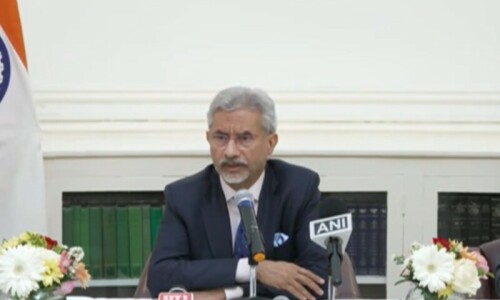SUDDENLY this week it dawned on me just why Malala Yousafzai has so many enemies and detractors in Pakistan.
As she received the European Union’s prestigious Sakharov human rights prize at the European Parliament in Strasbourg last week, Malala was as always poised, dignified and inspirational.
Of course, her international fame and celebrity make many jealous. But when she addressed the packed European Parliament — and received a standing ovation — I realised just why Malala makes so many people uneasy in the country she still loves.
Quite simply, she is a potent and visible reminder of a ‘would-be, could-be Pakistan’ of lost dreams and aspirations, the way the country used to live and think before extremism and intolerance took over.
She stands for a ‘could-be’ Pakistan of educated children, empowered women and decent, active citizens which could still emerge if real efforts are made to defeat terrorism and bring extremists to heel.
Malala’s real power as demonstrated so vividly in Strasbourg is her belief in the power of education, a commitment which can strike fear into the hearts of those who would rather keep the ‘masses’ in the darkness of ignorance. And it’s not just because education is a fundamental human right, it’s also because educated people are a threat to the forces of evil which roam so freely across Pakistan.
Doing some research ahead of a high-level discussion on education in Brussels next week, I was reminded of why successive governments in Pakistan and other fragile states continue to pay so little attention to building schools and colleges. While mosques of all sizes spring up across the Muslim world, spending on education remains relatively low — in Pakistan it is shamefully low. Insecure rulers want their citizens — the ‘masses’ — to stay illiterate for as long as possible.
Education is not only essential for the exercise of all other freedoms, it is a driver of inclusive growth, poverty reduction and of the empowerment of women. Significantly, education is also the key to nation-building, tolerance and progress.
Education reduces the likelihood of conflict and is a prerequisite for democratic development, active citizenship and better living standards. Quite simply, education has enormous transformational power. And that is exactly what scares the forces of obscurantism.
The statistics are impressive. Here is some of the more striking data that I trawled through.
According to Unesco, if all children in low-income countries could read, poverty levels could drop by 12pc. Every extra year of education in poor countries adds about 10pc to a person’s income on average and even more for women. Although many more children attend schools and girls’ education has markedly improved in recent years, there are still an estimated 57 million children who are out of school.
There’s no doubt: education empowers girls and young women, in particular, by increasing their chances of getting jobs, staying healthy and participating fully in society — and it boosts their children’s chances of leading healthy lives.
Education saves mother’s lives. Every day, almost 800 women die from preventable causes related to pregnancy and childbirth, including pre-eclampsia, bleeding, infections and unsafe abortion. Educated women are more likely to avoid these dangers by adopting simple, low-cost practices to maintain hygiene, by reacting to symptoms and ensuring a skilled attendant is present at birth.
Educated women are in control of their fertility. In Pakistan, while only 30pc of women with no education believe they can have a say over the number of children they have, the share increases to 52pc among women with primary education and to 63pc among women with lower secondary education.
Maternal education improves children’s health and nutrition. According to Unesco, India and Nigeria account for more than a third of child deaths worldwide. If all women in both countries had completed secondary education, the under-five mortality rate would have been 61pc lower in India and 43pc lower in Nigeria, saving 1.35 million children’s lives.
And there’s more: education increases women’s and men’s job opportunities, helping households to escape poverty. Educated men and women are more likely not just to be employed, but to hold jobs that are secure and provide good working conditions and decent pay.
If all students in low-income countries left school with basic reading skills, 171 million people could be lifted out of poverty, which would be equivalent to a 12pc cut in world poverty.
In Pakistan, working women with good literacy skills earn 95pc more than women with weak literacy skills. In rural Indonesia, an additional year of schooling reduced the chances of falling back into poverty by 25pc.
Education reduces child marriages and early births. As evidenced in many of Asia’s rising powers, education is also a key factor in hastening the demographic transition to lower birth and mortality rates.
And here’s the crunch: education makes people more tolerant and ensures greater awareness of human rights. Data shows that in African countries, those of voting age with primary education are 1.5 times more likely to express support for democracy than those with no education, and the level doubles among those who have completed secondary education.
In India, those with secondary education were 19pc less likely to express intolerance towards people speaking a different language compared with those with less than primary education. In countries in sub-Saharan Africa, the risk of conflict in the areas with the highest education inequality is almost double that of the areas that have the lowest education inequality.
As Malala said in Strasbourg, “a country with talented, skilful and educated people is the real superpower and not the one with tons of soldiers.” And that’s exactly what the Malala-haters are afraid of.
The writer is Dawn’s correspondent in Brussels.











































